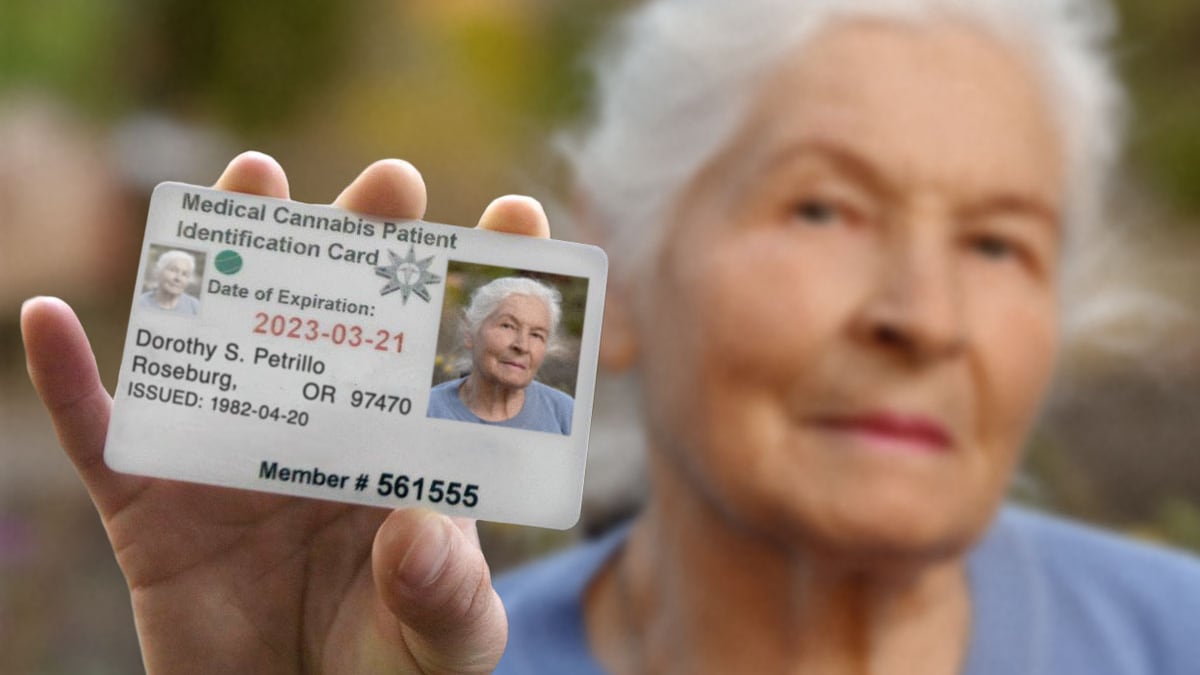As a kid growing up in Roseburg, I thought a "green card" meant a medical marijuana card.
By the time I was in high school in the mid-2000s, it didn't matter what type of family you came from, or how deeply conservative its roots—everyone had a friend or family member with a medical card.
Maybe it was an uncle who was a veteran or suffered from glaucoma. Maybe it was a stepmom who grew at an off-the-grid commune in the country. These people had kids and jobs, and risked criminal prosecution because they were proof of marijuana's medical potential.
Did the Oregon medical marijuana program have some leakage? Sure, some people sent their harvests across state lines and made a mint. They weren't the ones who risked jail time by testifying, who tipped things with the legalization of medical marijuana in 1998, or paved the way for recreational marijuana to become a retail industry that brought in $60.2 million in tax revenue last year.
The medical patients who risked everything are out of sight when you look around and see high-end dispensaries replacing neighborhood bodegas. The image of cannabis has been totally flipped from shameful medicine to luxury-branded commodity.
And that has created a fast-approaching crash of the medical industry.
Because Oregon lawmakers—who didn't legalize cannabis on their own, but rather had legalization executed by the voters—forgot about those pioneers.
My dad, David Terry, a defense attorney who's worked in Southern Oregon for more than 30 years, remembers how bold those court testimonies were back in 1998.
"They were scared—they often got busted and had records," he told me. "But because of those people who admitted to using marijuana for medical purposes, you saw a major shift in attitudes after the possession limits increased to anything 'less than four ounces.' Prosecutors were lenient with numbers that were close enough, and there was a degree of compassion where there hadn't been before."
Because of new laws enacted by the state, most dispensaries have departed the medical world to pursue bigger profit margins in the recreational market. The system is also bringing producers and retailers to the recreational side, creating a chain reaction that has left medical shops with few vendors or customers.
Since Jan. 1, medical shops can sell only medically grown product. That means the recreational and medical supply chains are totally separate. As of January, medical dispensaries had a shrinking population of 67,141 patients. The number of medical shops has dropped from 424 to a mere 65 in the past six months, while the Oregon Liquor Control Commission reports 417 licensed recreational shops in Oregon.
If there are 1,000 customers for every medical dispensary, those shops should be fine, right? Not on the supply side. Because recreational shops will see far more customers than medical dispensaries, it's a safer bet for growers, processors and edibles producers. So recreational shops have a wider variety of products, forcing many patients to shop at recreational dispensaries to buy the brands they need. That leaves thousands of patients without the growers who have provided their medicine for years.
André Ourso, head of the Oregon Medical Marijuana Program, is quick to point out to discontented medical growers that voters approved a law that promised "robust regulation of cannabis," and that "this is what legalization looks like."
"Up until now, we've had a 'wink wink' medical marijuana industry, where many people were stacking patient cards and making a lot of money," Ourso said at last August's meeting of the Advisory Committee on Medical Marijuana in Northeast Portland. "And just like the family-run whiskey stills after alcohol Prohibition ended, companies are going to have to decide whether they want to operate a business that makes money and cooperate with the OLCC, or make medicine for the love of medical marijuana."
It's important to remember that marijuana is still medicine for a lot of people.
The next time you buy a fresh eighth after work, take a minute to feel gratitude for the pioneering advocates who put their names on the line to lay a foundation for our state's cannabis industry.

